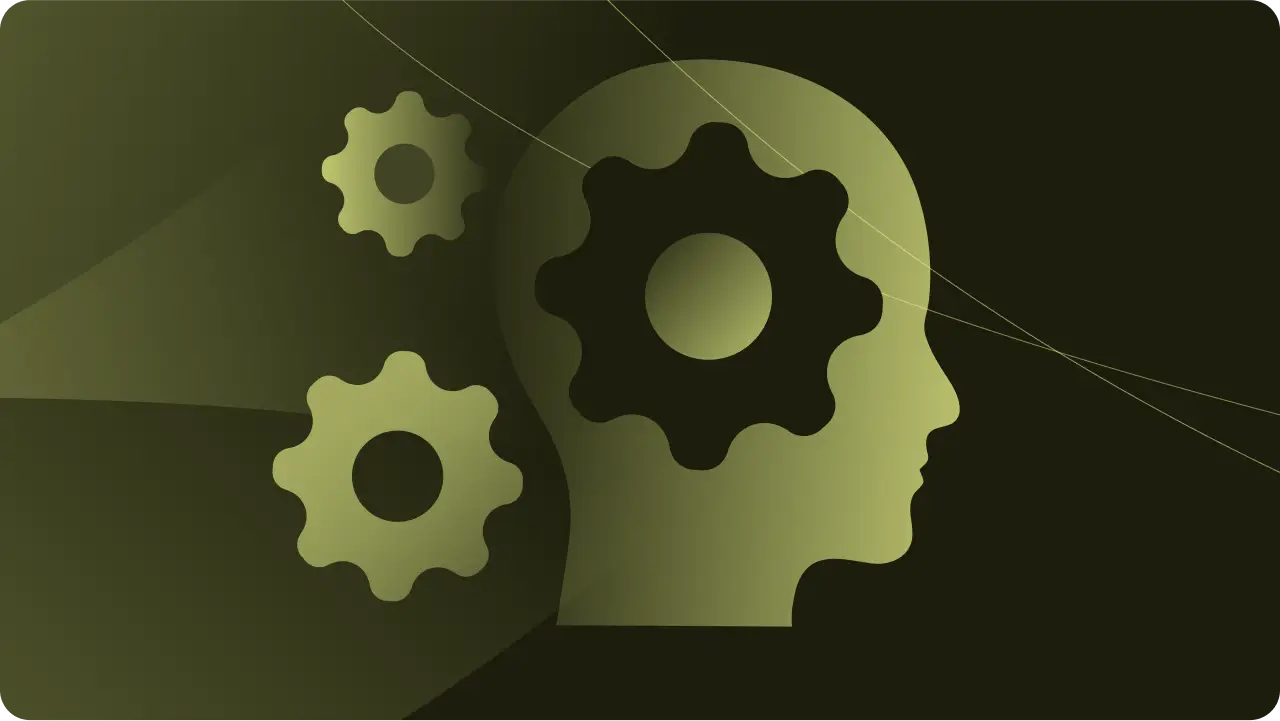
Key Takeaways
Agentic AI involves deploying autonomous AI “agents” that can independently reason, plan, and execute actions to achieve a specific goal.
- What it does: An AI agent can be given a high-level objective, like “process all incoming invoices,” and it will then determine and execute the necessary steps across multiple systems.
- The business impact: This is a major leap forward from simple task automation, promising a future where entire business functions can be automated with a new level of intelligence.
- The key requirement: For safe enterprise use, these agents must operate within a governance framework that includes human oversight and a complete audit trail.
Market adoption of agentic AI has exploded in 2024. Prior to this year, agentic AI was a foreign concept to most organizations, even those already exploring traditional AI or automation solutions. However, analysts now claim that agentic solutions are poised to revolutionize how businesses approach productivity—including automation and process optimization—much in the way RPA once did. Agentic AI offers a more intelligent, adaptable, and autonomous approach than traditional automation methods used to tackle complex business challenges. So what is it?
What is Agentic AI?
Agentic AI leverages advanced machine learning algorithms and natural language processing to act autonomously on behalf of users or organizations to achieve specific goals. These AI agents are part of an artificial intelligence system designed and trained to understand context, make decisions, and execute tasks with minimal human intervention. Agentic AI can adapt to new situations and learn from experience in a way that rule-based automation systems cannot.
Agentic AI vs. Legacy Automation
Traditional automation technologies like Robotic Process Automation (RPA) and Intelligent Document Processing (IDP) have helped organizations streamline simple, repetitive tasks and improve operational efficiency. But when faced with complex, variable processes that require human-like decision-making, the technology falls short or fails entirely.
The key differences between agentic AI and legacy automation include:
- Adaptability: Agentic AI can handle exceptions and adapt to changing scenarios, while RPA typically requires reprogramming for even the most simple process changes.
- Intelligence: Agentic AI far surpasses the rule-based logic of traditional RPA. Its sophisticated AI models are capable of understanding context and making informed decisions.
- Scalability: The deterministic nature of legacy automation means that it excels at handling simple, unchanging processes at volume. Organizations looking for a scalable solution often turn to agentic AI to handle diverse processes across multiple departments without extensive reconfiguration.
- Natural Language Interaction: RPA is built upon programming code, limiting accessibility for team members who don’t have specialized development skills. Most agentic AI solutions rely on natural language to interact and define processes, reducing the technical barrier.
Beyond Agentic AI: The Kognitos Approach
Agentic AI showcases just how significantly the technology has advanced since the introduction of legacy automation. Kognitos takes the advancements of agentic solutions and integrates them seamlessly into a platform that matches or even transcends these advanced capabilities. We offer an entirely different infrastructure that addresses and eliminates the limitations of both legacy automation and current agentic solutions.
Enterprise-Scale Digital Workforces
Most agentic AI solutions focus on 1:1 automation of individual tasks—one “agent” for one task. Kognitos builds upon the agentic model by introducing the concept of “agencies”—a large-scale digital workforce that goes beyond a single “agent,” capable of tackling more complex enterprise-wide initiatives. This “agency” approach empowers organizations to automate complex, multi-step processes involving dozens or even hundreds of steps, far surpassing the 2-3 step limit seen in current agentic solutions.
Conversational Exception Handling
Kognitos’ unique conversational exception-handling feature involves human experts in a meaningful way, allowing the system to learn from your team’s expertise to grow over time. Our approach goes beyond simple prompt engineering, enabling continuous improvement of process automation through real-world interactions and feedback.
Hallucination Control and Consistency
“Hallucinations” are a constant struggle with any AI, and can present real business implications if your automations hallucinate, or generate incorrect or nonsensical outputs. Kognitos has developed robust mechanisms to control these issues, ensuring reliable, dependable, and replicable process execution for enterprise clients.
Technical Debt Reduction
As organizations get more sophisticated, their tech stacks naturally grow. Kognitos allows our customers to consolidate multiple technology solutions into a single, comprehensive platform to address their AI and automation needs while simultaneously reducing their technical debt. This consolidation not only streamlines operations but also significantly cuts costs associated with maintaining multiple disparate systems.
Industry Validation and Future Outlook
Industry analysts and experts increasingly recognize the potential of advanced AI automation solutions like Kognitos. Gartner predicts that by 2026, over 30% of enterprises will automate more than half of their network activity, as compared to just 10% less than a year ago. Generative AI has only increased demand for automation, and agentic AI will further propel demand. Gartner’s predictions are supported by a recent McKinsey survey which found that 65% of organizations have adopted and are actively using generative AI, a figure that nearly doubled in less than a year.
Kognitos is poised to play a pivotal role in the AI landscape as organizations look to supplement or replace their legacy automation solutions with updated, integrated technology like agentic AI. With capabilities that go beyond either legacy automation or current agentic solutions, Kognitos has set a new standard for intelligent, scalable, and adaptable enterprise AI automation.
AI technology will reshape the future of work. It holds the promise of returning humans to more human work by freeing them from repetitive tasks, increasing efficiency and cost savings, and ultimately allowing them to focus on more strategic, creative, and value-adding activities.
Discover the Power of Kognitos
Our clients achieved:
- 97%reduction in manual labor cost
- 10xfaster speed to value
- 99%reduction in human error








